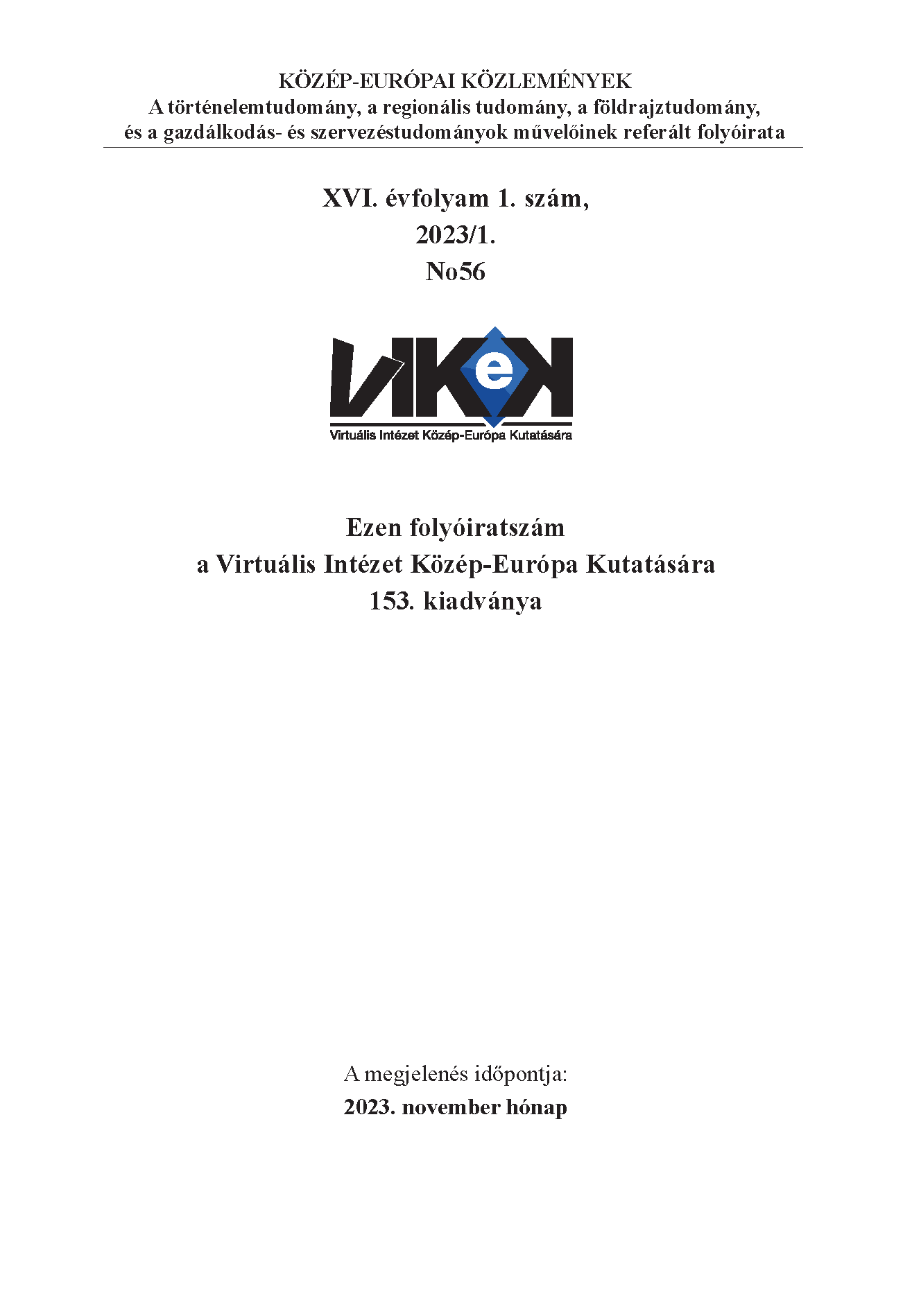A foreign office and the new central europe 1918–1920
Main Article Content
Abstract
At the Paris Peace Conference it was decided to dissolve the Austro-Hungarian Monarchy. The primary manifestation of this was the creation of new borders. There were geopolitical and political antecedents and experiences to develop it. In particular, support for the New Europe movement, coordinated by the Foreign Office, the movement of non-independent nationalities formerly living within the Austro-Hungarian Empire. The British position proved to be decisive in the formation of the future borders, which was fully in line with the American one. The Foreign Office played a decisive role in formulating this, as their experts worked there in the British delegation. Practically by mid-1919, the new borders were formulated, which proved to be final, which was changed almost nothing. Instead of a unified Central European settlement, the goal was to create nation states. Yet within the framework of the League of Nations, border adjustments were allowed, which then settled conflicts to a small extent.
